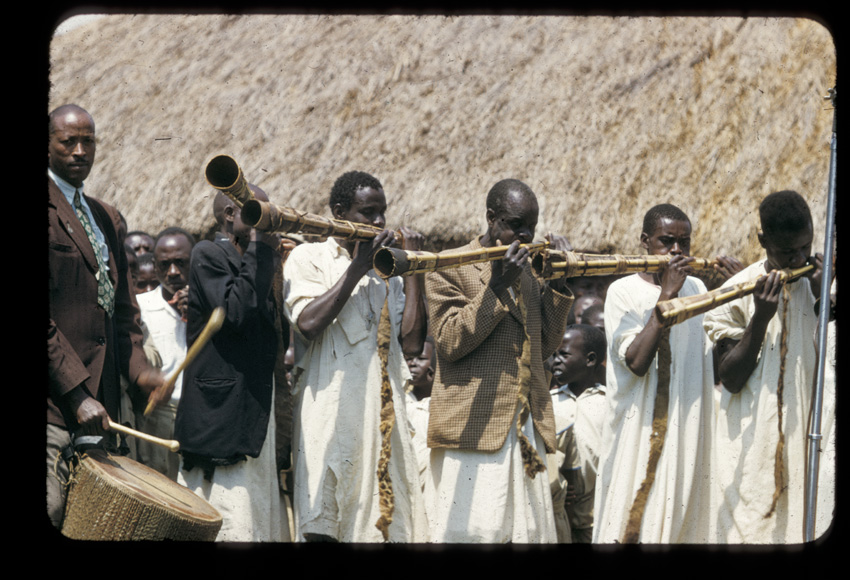At Singing Wells, our goal is “to record, archive and share the traditional music of East Africa for two important reasons – to sustain and celebrate the extraordinary cultural music heritage of the region and to help make this legacy relevant and fresh to today’s audiences.” And it is always great to hear of stories where others are attempting to do the same, especially in countries so close to our heart, such as Uganda. An article on the website of the Ugandan daily newspaper, New Vision, warns about the need to preserve ‘Bigwala’, the royal music of the Busoga region.
Bigwala music is performed at ceremonies such as coronations, funerals and, recently, other social events. It is the music of gourd trumpets and is accompanied by a specific dance. UNESCO cites Bigwala music as playing ‘a significant role in contributing to unity among the Basoga people’, as it narrates the history of the Basoga people, especially concerning their King. It makes important links to their past and cultural heritage, whilst also dealing with issues such as leadership, marriage problems and social norms.
However, it is on the brink of distinction. There are only three men who are masters of the music, able to teach it to future generations: Ahamada Kakaire, 88, who seriously ill and bedridden, leaving only James Lugolore, 78, and Sulaiti Dongo, 79. Irene Nabirye, a resident of Butongole village, one of the two villages which play Bigwala music, attributes the music’s decline to two main factors: western influence and the 1966 abolition of kingdoms by former president Milton Obote.
But, there is hope as the National Council of Forklorists in Uganda (NACOFU) has been helping the villagers to preserve the music, by encouraging them to grow gourd trumpets, teach it to the youth and increase the profile of the music, by performing it at more occasions. Nevertheless, their efforts are stumped by limited resources and finances.

